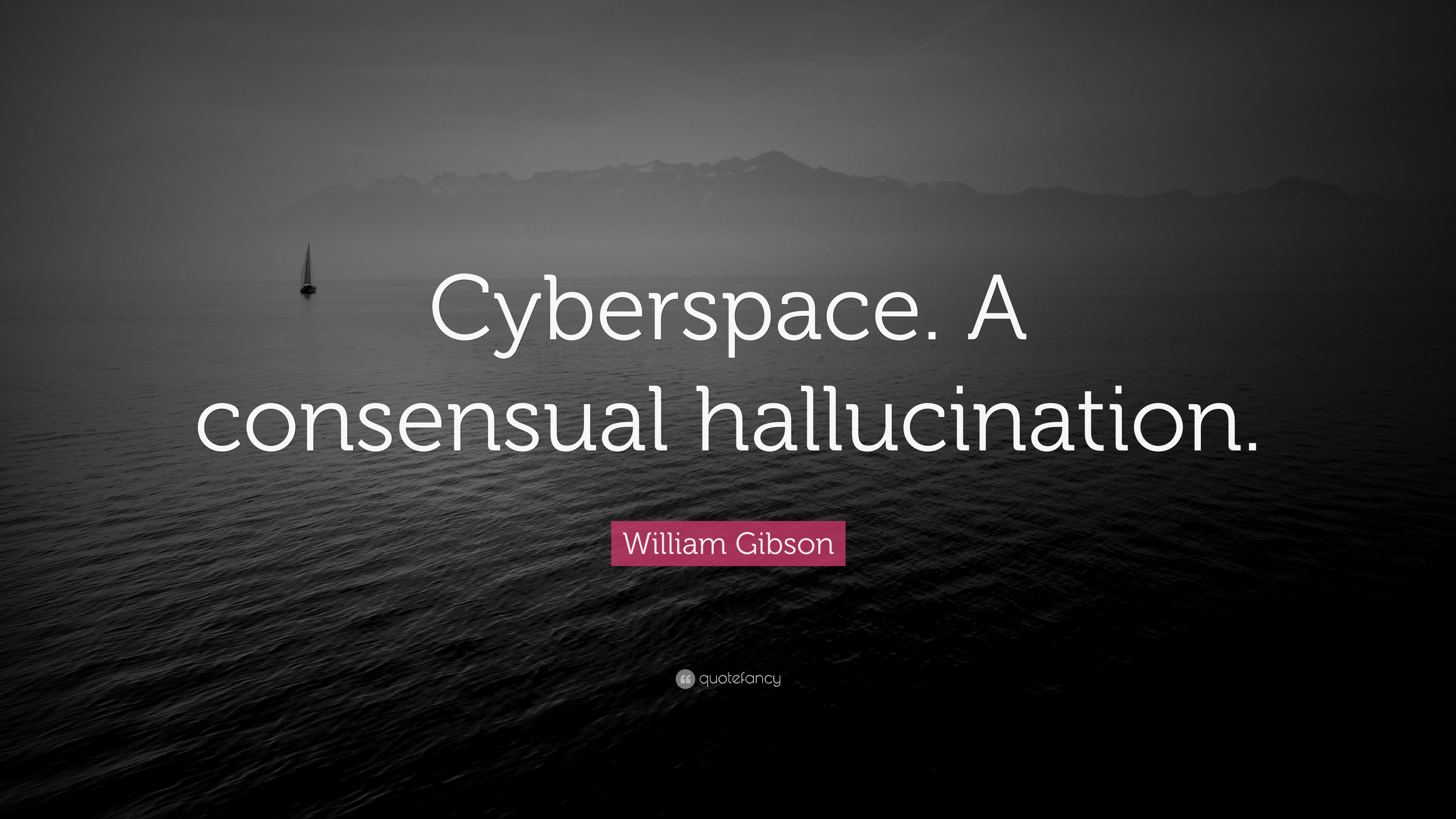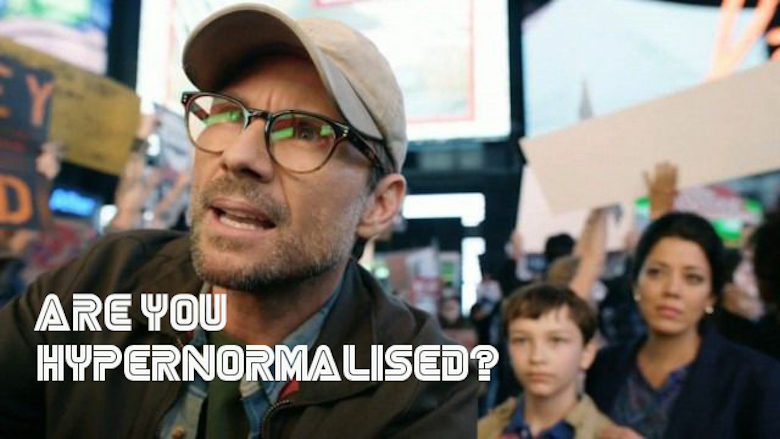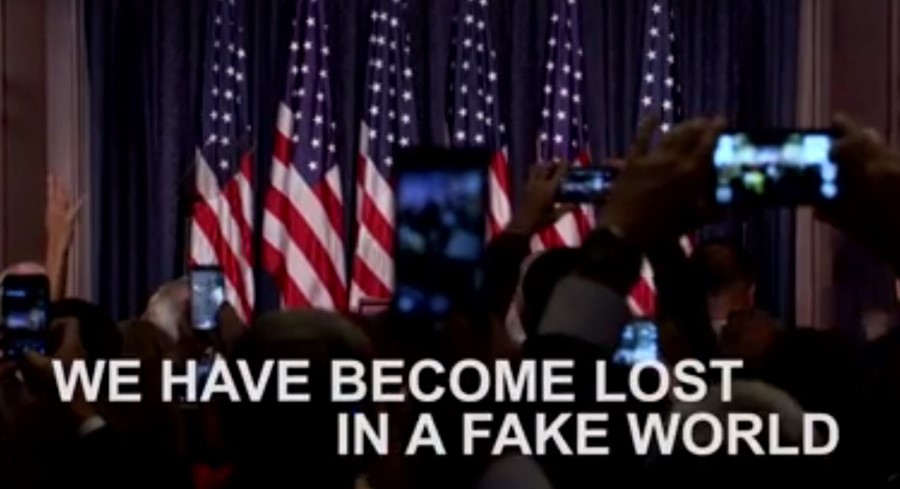Englishman trying to understand WTF is happening in the world today - a review of HyperNormalisation
A friend of mine recently asked me to watch Adam Curtis' 2016 documentary HyperNormalisation as she was interested in what I thought of it. I was reluctant to watch it at all as it was funded by the BBC, or British state sponsored propaganda as I think of it. However, I did want to show willing and be able to discuss it with her the next time I saw her. Adam Curtis also has the reputation for being a radical and I felt that I should watch some of his work. I ended up taking fairly copious notes and thought perhaps I will spare her and write it all down instead.
The term hypernormalisation comes from Alexei Yurchak's 2006 book Everything was Forever, Until It Was No More: The Last Soviet Generation. Yurchak argues that everyone knew the system was failing but as no-one could imagine an alternative, the state and the people were locked into pretending it was working still. Over time this pretence, this "fakeness" was accepted by everyone as real and termed hypernormalisation. Of course this ignores the various points in history where people in the Soviet controlled countries, like Hungary, did try to visualise a better type of society. Like a pressure cooker, it was when the bureaucracy, knowing that society was at an impasse, decided to lift the lid (Perestroika) that actually resulted in the entire system collapsing.
The film starts in 1975 and begins with juxtaposing New York with Syria. The financial crisis in New York, with a bond auction failure and concerns over debt repayment, subtly plays into problems that America is facing today. Throughout the film Trump's business life is cleverly inter-weaved, as in his plans to gentrify New York, thus solving the problems through debt, and a property boom. The logic of the market became the ultimate imperative and Curtis points his finger at the unions and the left for succumbing to a mood of disillusionment. "While we were dozing the money crept in".

Source https://medium.com/thrice-removed/hypernormalisation-242567ba451f
Curtis then turns to the Middle East. His focus is on Damascus and the relationship between Kissinger and Hafez al-Assad (the father of current Syrian president). Curtis touches on how Hafez Assad had dreams to unite Arab leaders to stand up to the West. Curtis then goes on to explain that Kissinger had the exact opposite idea. His plan was to sow disunity and fund dissident groups to stir up trouble. Finally American involvement in the Lebanon War felt to Hafez Assad like a personal betrayal by Kissinger. The documentary builds a persuasive case that it was Hafez Assad and the Iranian leader Khomeini that developed the Islamic suicide bomber. The portrayal of Hafez Assad as “vindictive” and Syria a hot bed of terrorists did, however, make me concerned for where the story was heading.
The film then moved onto looking at the period of collapse of the Soviet Union in the late 1980s. Curtis claims that it was apparent Stalinism as a system had failed and nobody believed in anything anymore. Unable to admit the inability to plan and control everything the government, the bureaucracy, and the media all started to make out like everything was fine. How the parallels ring out. Under such circumstances, a fake version of society emerged. Anyone feel like they’re living in a Matrix? Everyone had to play along and pretend it was real. This reminds me of the film Good Bye Lenin! in which they pretend for his mother’s sake that Communism hasn’t fallen.

Source https://quotefancy.com/quote/1020753/William-Gibson-Cyberspace-A-consensual-hallucination
I found the most interesting part of the film the sections on technology. Telling the story of imaginative visions of cyberspace and the potential of this technology in a context of how power and control work. There were some good interviews with hackers Phiber Optics and Acid Phreak on these issues. Later in the film Curtis shows us some fascinating footage of an early AI Eliza undergoing testing. What impressed me was how quickly the woman bonded with Eliza. The film talks about technologies ability to reassure people. It can do this by reflecting ourselves back to us. Through the creation of bubbles we can protect ourselves from what Curtis terms confusing complexity.
Curtis further examines the relationship between technology and the financial world. He looks at 'Aladdin', a technology system developed by BlackRock that seeks, by drawing on a vast database, to analyse the risk of investment. I don't think Curtis goes anywhere deep enough into this topic. He could have developed the idea that the technology has actually increased the risk, and that although he goes on to talk about the 2008 Crash, he fails to take it further. Indeed, one could say that at the heart of the West's 'hypernormalisation' is the fakeness of our economic reality. That, like the Soviet Union, all markets in the West are now manipulated and are complete with fake statistics.
In terms of technology, I would have been very impressed if the documentary had then gone on to talk about new developing technologies, like the Blockchain, and the potential they present. A discussion about the implications of the blockchain for democracy could have been set alongside, say Gibson's work on cyberspace. Further, an explanation of crypto currencies and how they may come into play in a world where trust in the current financial system has/will evaporate, would have given this documentary an A+.
The story of the Middle East is more of the focus of this film though. The story of Muammar Gaddafi is a strong section of the film. It shows quite clearly how the West demonised Gaddafi as a terrorist supporting monster, then it recreated Gaddafi as a friend, before being betrayed by his Western “friends’’ and eventually murdered. North Korea beware.
Curtis points out how after each terrorist bombing in the 1980s Gaddafi was immediately blamed. He points out that a fake dossier was produced as evidence of Libya’s involvement. The film notes how Gaddafi’s pronouncements to his own people, like that Reagan was an “idiot” and Thatcher “a harlot”, were easily able to be used as evidence for Western audiences that he was a mad man. This was a pervasive and concerted effort on the part of the Western establishment, including the press. Then in the noughties things changed after 9/11 due to President Bush’s 'War on Terror'. Tony Blair even flew out to Libya to meet Gaddafi and congratulate him on giving up his non-existent chemical weapons while taking the blame for various terror attacks all to get into good faith with the major imperialist powers. Finally, Gaddafi finds himself on the wrong side of history during the Arab Spring of 2011. The narrative propagated by American imperialism and its allies was that Gaddafi was an evil dictator out to kill his own people for wanting democracy. This led to the ‘humanitarian bombing’ carried out by the U.S., UK and France which helped overthrow Gaddafi’s regime.
At this point, Curtis could have pointed that the West did not approve of Gaddafi’s idea of selling Libyan oil for Euros and using the proceeds to support Africa’s economic development. He could have added that the West not only bombed Libya’s infrastructure to pieces but, with help from the Gulf dictatorships, also supplied weapons to the so-called rebels. The so-called Libyan rebels who have now degenerated into various war lord factions and have turned Libya into a failed state wracked by civil war.
The film then goes onto its central thesis that there has been a blurring of fact and fiction. That due to the confusion of complexity politicians have resorted to perception management. Reality is no longer important in this context. As an example of this he talks about UFOs and the creation of a fake conspiracy theory. Unfortunately this is the last the documentary talks about conspiracy theories, and as you can imagine does not even raise the issue of false flags.
The documentary goes downhill from there for me because the distance between fact and fiction just widened too much. I had to laugh when he talks about the journalists who were wrong about which way the vote went in the US Presidential election and Brexit. He speaks of such journalists as defeated, and says, somewhat naively, that their “main job is to expose the truth”. He then goes on to say that the stories put forward by the establishment had stopped making sense. Yet, he doesn't examine why, beyond a basic conclusion that it's just all too darned complicated.
This documentary is itself, of course, a story trying to make sense of it all in this confusing complex world. It's told by a plummy Brit, expounding a standard English narrative laced with colonial racism and bias towards Israel. Whilst it usefully points to a number of fictions, it does not do so well at getting to the facts. Yes, Adam, I can see you are confused, it’s no wonder when you live in a world of lies and mirrors. I would like to see one of his documentaries once he has taken the red pill, but then the BBC wouldn't fund it!

Source https://www.mrrobothacks.com/mr-robot-hacks-hypernormalisation/


Another Curtis documentary to take a peak at would be the "The Power of Nightmares, the Rise of the Politics of Fear" from 2004.
The premise is that Al Qaeda is a essentially a myth used by the Neocons to create fear, a phantom enemy that the state uses to strip liberties and to carry out a preexisting agenda. Or something along those lines. It's been a while since I last watched it.
Links to themtube below;
Part 1 Baby Its Cold Outside
Part 2 The Phantom Victory
Part 3 The Shadows In The Cave
Looks like the rest (including Hypernomalisation) have also been uploaded to his channel
Thanks I vaguely remember it at the time but may give it another look.
Wanna play a game ?
always!
play with all - @doktor.pyramidis - - 4 #resteem & #upvote
How about Global Thermonuclear War ?
No.
4 a nice game pls visit @doktor.pyramidis
You forgot to call me Professor Falken. How about tic tac toe ?
Hi Prof,
x0x
00x
xoo
Strange game. The only way to win is not to play
You learned Prof. Falcon.
-not playing is no option
-not winning unequal to losing
#wargames
Your post was resteemed by @resteemza

Please upvote this reply to help us grow